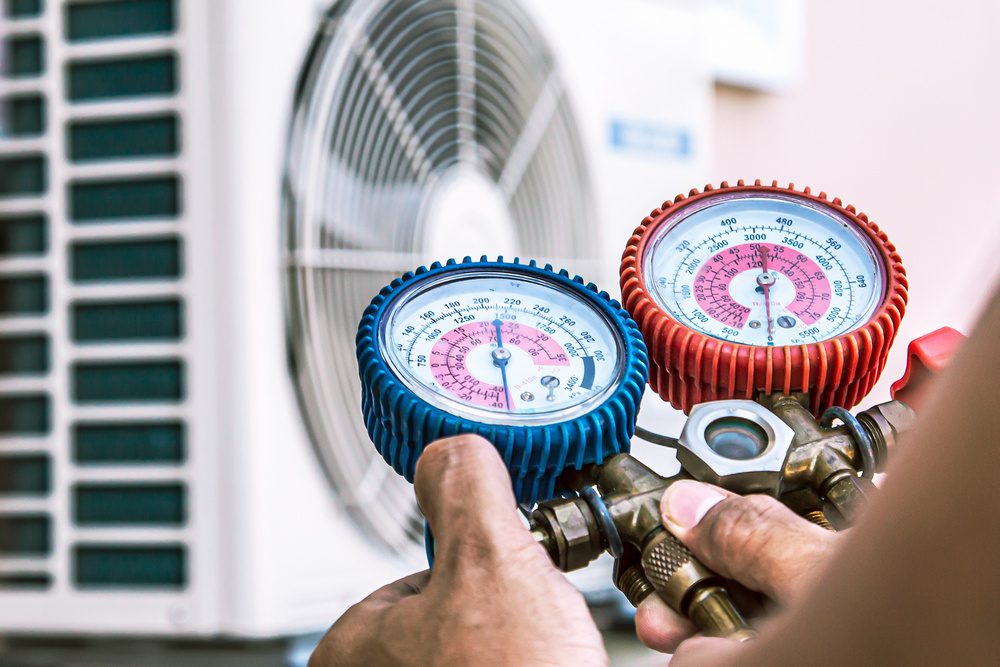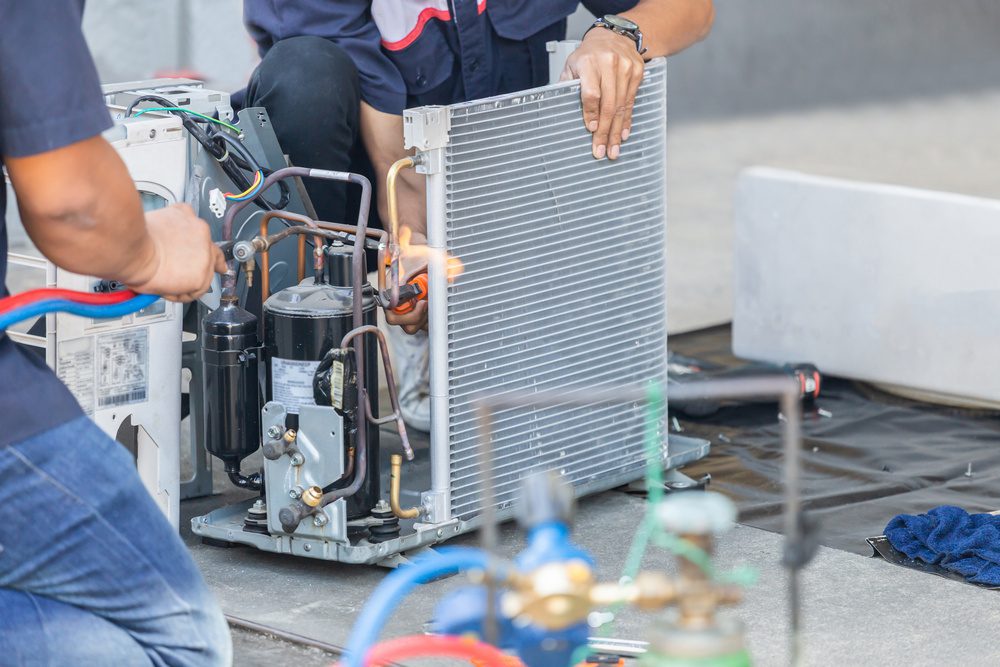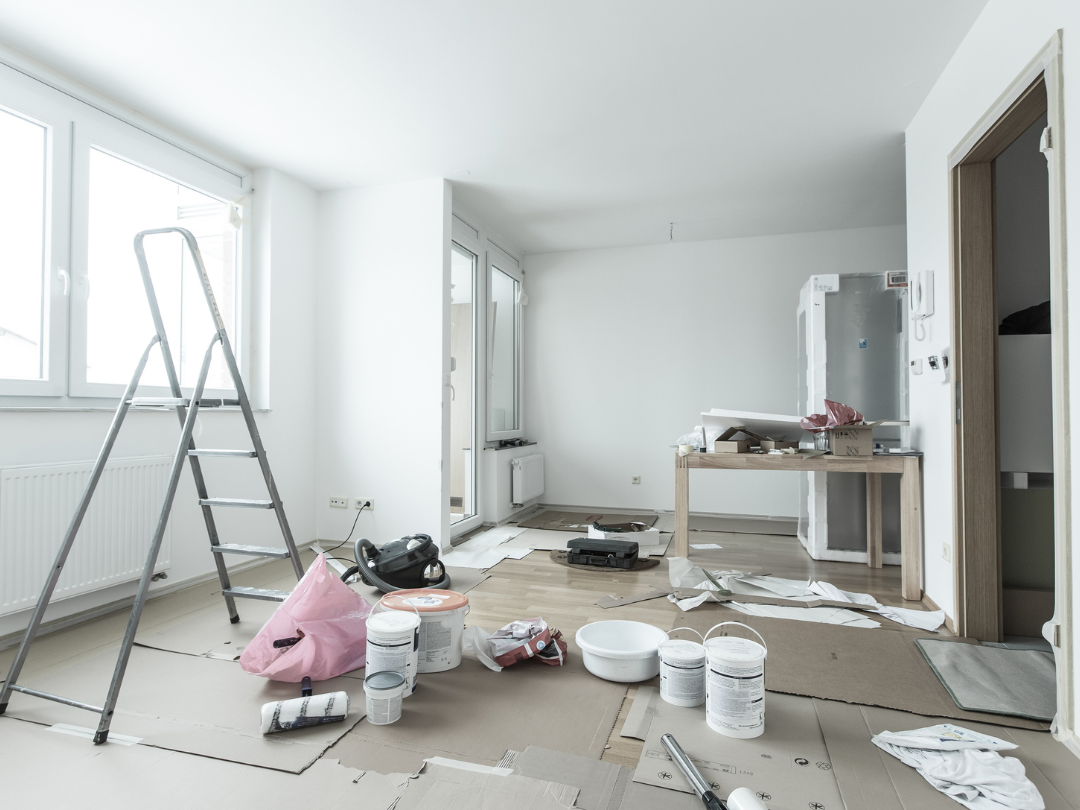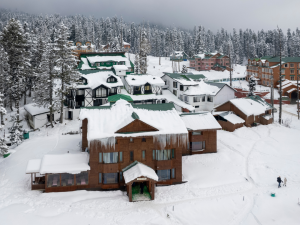Get the week's most popular posts delivered to your inbox.
Our weekly update is free yet priceless and you're less than a minute away from getting the current edition.
In the unlikely event we disappoint, you can unsubscribe with a single click!
Last Updated on October 30, 2025 by teamobn
Any home or building property located in a four-season country needs a reliable heating, ventilation, and air-conditioning system. This is crucial in ensuring that the air quality indoors is breathable and comfortable. Occupants of the property will need to live and stay in an environment that’s cool enough during summer or warm enough in winter.
However, like any system and home technology, you must retain the best performance of your HVAC system. It should work optimally throughout the year so you won’t have to waste energy resources and experience hefty electricity bills each month.
Fortunately, there are practical ways to make the most of your HVAC. Follow through with the tips below, and you can maximize the use of your HVAC system:
Contents
1. Perform Regular Maintenance By Pros
For your HVAC system to run perfectly without hurdles, professional maintenance should be performed twice a year. This is the time for a thorough checkup where they can inspect all parts and components of your HVAC.
The checkup includes the drainage system, blower, voltage details, coils, AC, and wiring connections. They can see whether belts need replacements, nuts, and bolts need to be tightened, or filters are replaced.
Air conditioning equipment needs to be serviced in the spring, and heating equipment needs to be serviced in the fall. Follow through with your schedule so major HVAC problems can be prevented.
Your home’s HVAC system needs to be maintained professionally at least twice a year. This is an annual wellness check for your system, similar to changing your vehicle’s oil every year. The key is to find the most reputable HVAC maintenance provider so you can rest easy knowing that experts are performing the task for you.
2. Clean Or Replace Filters
One crucial element for an HVAC system to continue performing efficiently is when the filters are constantly cleaned or replaced. HVAC filters remove harmful airborne particles and bacteria. Depending on what your home requires, they regulate the air quality and ensure that the air is cool or warm enough.
Your family or building residents will breathe better and fresher air when you regularly replace your filters. Your system can become damaged by clogged filters, resulting in costly repairs. Therefore, you must take note of the schedule for when you need to clean or replace your filters.
Go for quality materials and have them changed by a professional HVAC technician. It’s recommended to change them at least four times a year, significantly when seasons change. However, if you have a person prone to allergens or if you have pets in the household, it would be better to replace or clean them more frequently.
There’s a simple bottom-line here… Dirty or clogged filters restrict airflow, forcing your system to work harder and therefore consume more energy. This can lead to higher utility bills and premature wear on your equipment. To keep your HVAC system running smoothly, regularly replace your filters based on the manufacturer’s recommendations – usually every 1 to 3 months. Doing so not only improves efficiency but also enhances indoor air quality by capturing dust, pollen, and other allergens that can circulate through your home.
3. Inspect Drain Pipes And Pan
Another HVAC system component that requires inspection is your drain pipes and pan. Check them regularly if you’re familiar with their placements.
However, if you’re not sure, it would be best to hire a technician to do the task for you. Remove any blockages of algae or mold that may have developed in the drainpipe of your HVAC system.
Any clogged-up areas can be suctioned out by wet-dry vacuums, which a technician usually carries during their service. Ask them to clean the pipes and pans too.
They can use bleach or detergent soap to scrub the filth away. Don’t wait until you experience water coming off your sealings because the HVAC drain pipes or pans are already full.
6. Invest In Programmable Thermostats
The next thing to invest in is a smart thermostat. This maximizes the efficiency of your HVAC system. Controls and thermostats that can be programmed also help HVAC systems operate more efficiently.
The temperature can be set automatically, so it changes based on the time of day in which you program it. When nobody is home during the day, changing the temperature can dramatically reduce your utility bills.
A good thermostat will help your heating and cooling systems work responsibly, resulting in improved efficiency. They come in a remote application that you can access via an internet connection. Whether you’re out in the office and arriving a few minutes later, you can already turn on your AC to arrive in a cool home.
On especially hot days, pairing smart scheduling with targeted AC best practices can make a big difference—learn how to maximize your air conditioner’s efficiency during summer by following these step‑by‑step tactics.
Another tip is to adjust the temperature on the thermostat according to the weather or outdoor environment. Keep a higher temperature at night since the outdoor air is relatively cooler than daytime.
7. Seal All Leaks
One usual problem why HVAC doesn’t work as you expect them to is because of air leaks around your home. In the summer, you want to eliminate air leaks around windows and doors, and in the winter, you want to prevent warm air from escaping.
By connecting an energy-efficient HVAC unit to a leaky duct system, the air escapes before reaching the home’s interior, defeating the purpose. This often leads to your HVAC working harder, generating more energy, and transcending to heftier utility bills. The best solution is to seal cracks and fill the gaps to prevent air leakage.
Evaluate your house and see where there is air leakage. You need to invest in caulk, weatherstrip doors, windows, or seals for some HVAC components that still leak air. Before applying these seals, perform a blower test to determine which areas need air sealing.
8. Remove Obstructions
Your outdoor HVAC system is not exempted from accumulating obstructions that can hinder its efficient performance. Keep your outdoor unit’s airflow free of obstructions by removing leaves and debris.
If there are plants and trees nearby, ensure that they’re trimmed regularly so they won’t construct your system. Ensure your unit’s clearance of about 1 meter on all sides of your HVAC unit. Your condensers can be easily clogged up with the smallest leaf or branch, so make sure to follow through with this tip.
Aside from ensuring the clearance of your unit outdoors, you also need to check the HVAC connection from the insides. It’s best to dry vacuum your indoor supply vent if it’s accumulated too many dust bunnies and other bacterial particles.
Ensure all obstructions are removed from your air conditioning and heating units for proper airflow. When there are no blockages, your HVAC can perform better and have a longer lifespan.
Conclusion
Maintaining your HVAC system doesn’t always have to be expensive or complex. Understand the parts, know your HVAC system, and keep it in top working condition to keep your HVAC system running all year efficiently.
Apply the tips mentioned above and rely on professionals to perform regular inspection and preventative maintenance tasks.
Get the week's most popular posts delivered to your inbox.
Our weekly update is free yet priceless and you're less than a minute away from getting the current edition.
In the unlikely event we disappoint, you can unsubscribe with a single click!






